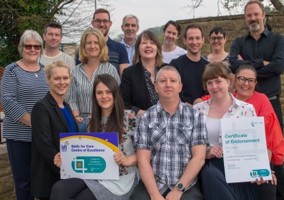Recruiting apprentices is a “crucial step” to improving diversity in a sector that has typically hired people from a privileged socio-economic background, Bond has said.
The representative body for international development highlighted the benefits of different approaches to entry-level recruitment during National Apprenticeship Week (8 – 14 February).
In 2019 Bond partnered with Multiverse, a technology start-up that runs apprenticeships as an alternative to college or university, which has helped get 57 apprentices into the NGO sector.
Stephanie Draper, CEO of Bond, said: “Entry-level roles at NGOs traditionally go to applicants with extensive higher education qualifications or from one type of socio-economic background. Apprenticeships provide a unique opportunity for NGOs to recruit a new generation of diverse and highly skilled talent. This is a crucial step an organisation can take to improve diversity across the sector.”
Charities and apprentices who have been involved in the programme said it had been a valuable experience.
Foundations of a career in the sector
Last year two of Unicef UK’s apprentices secured longer-term roles beyond their apprenticeship.
Steven Waugh, Unicef UK’s executive director, said: “We are on a journey towards representing the communities in which we work, and we embrace and celebrate people from all walks of life. The apprenticeship programme creates different entry points to employment at Unicef UK, which helps us reach a wider audience, bring in more diverse perspectives and ways of thinking, and helps challenge accepted ways of working. It’s also a good way to develop a future talent pipeline, particularly for areas that are harder to recruit for.”
Islam Fessih, who is a partnerships apprentice at Unicef UK looked for an apprenticeship after working his local community strengthening the relationship between young people and the police.
He said: “The experience has transformed my perception of apprenticeships; it has proved an extremely invaluable experience so far and given me a foundation for a successful career in the non-profit sector. Unicef UK entrusted me with a lot of responsibility allowing me to develop key skills such as communication, organisation and critical thinking – competencies which may not necessarily form part of the standard university curriculum.”
Career switch
It’s not just people who have recently left school who have opted for an apprenticeships, they can be used for people switching careers or already working in the sector but want to improve their skills.
Christine Barrett, programme officer at World Vision, had worked in the private sector before joining the charity eight years ago and “jumped at the chance to study in work hours” to study for a project management qualification.
She said: “As I am now in my mid 50’s I wondered whether I would already know much of the course content, but no! I have learnt lots of relevant skills, like developing a communications plan, the stages of team development and stakeholder engagement. In other words, a great way to beat the ‘lock-down’ blues!”
Mark Sheard, CEO of World Vision UK added: “It’s been wonderful to invest in Christine through this scheme, enabling her to progress in a career she’s passionate about – and her story is evidence that apprenticeships are not just for young adults. People at all stages of their career can take advantage of the opportunities that an apprenticeship has to offer, and be supported to develop their skills while getting lots of hands on experience.
“I’d really encourage other NGOs to use apprenticeships as a way to encourage staff to drive their own development, as well as to improve diversity within our sector. As a faith-based organisation, we at World Vision are especially keen that our workforce is inclusive and that we foster an encouraging environment in which those from all walks of life can thrive. Schemes such as this one are crucial in enabling us to do this.”
Related articles












